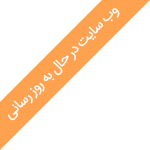Anthropology: A New Scope
Finding the Roots of Man's Weaknesses
In our analysis of human shortcomings, the following factors can be mentioned:
1-The dependence of human life upon realities outside it: Man's physical aspect depends on a series of internal and external factors that follow specific rules; these factors sometimes bring about shortcomings in man. In the spiritual aspect – concerning man's potentials and instincts – there are extremely delicate and sensitive relationships that may be distorted and disabled by other powerful factors. Thus, man possesses a series of physical and spiritual abilities and limitations he cannot escape. These limitations do not however, a) inhibit the order and harmony in his life, and b) man has no responsibility concerning his involuntary inabilities.
2-The shortcomings caused by emergent ignorance: Man never knows what kind of spiritual or mental state he will be in the next moment.
ای برادر عقل يک دم با خود آردمبهدم در تو خزان است و بهار
(Do thought and intuition inside Yourself, and you will find that various states and moods Keep arising in you. Indeed, springs and autumns rise and fall in us.)
Thus, as Jalal-addin Mohammad Molawi (Rumi) sees it, the human spiritual states – if not derogatory and vulgar – can be related to God.
Man may guess what his future spiritual state may be by means of comparisons and metaphors, but he can never have definite knowledge of it. This kind of shortcoming makes man moderate in his feelings of innate greed and ambition, and prevents him from rebellion. By reinforcing human thought and intelligence in the knowledge of facts, this can be overcome.
3-Voluntary shortcomings that originate from man himself: The two weaknesses mentioned above are not considered as imperfections in the creation of man, for they are involuntary and cannot be eliminated entirely; however, man suffers from a series of shortcomings that are brought about by actions he does at his own free will, and is responsible himself for overcoming them. Wars, atrocities, lies, and addictions are examples of shameful weaknesses that are caused by man himself, and only he is responsible for eliminating them.
There are three situations in which the powers and weaknesses of human beings reveal themselves:
1-Differences in potentials and talents and involuntary situations make people differ. A genius is quite different from someone who has fairly little intelligence. The former can be regarded as powerful, and the latter as weak. When a person has literary talent and taste, he can be considered as stronger than the one who does not have it. Various talents for learning, intelligence, the power of guessing, and talent for economics, law and politics can categorize people into strong or weak. The variety and diversity in talents and characteristics is so great that some people may be strong in certain potentials and weak in other ones. In such cases, since each person has advantages that others do not possess, the members of the society must harmonize their different potentials and talents to serve everyone's development and perfection.
2-Sometimes the difference between the strong and the weak is used for progress toward intelligible life, and both the strong and the weak aim for the pinnacles of intelligible life. The diversity in the potentials, talents, emotions, desires, thoughts, cultures, physical situations and social environments is so great among people that the difference between the strong and the weak can never be totally eliminated; social life, instead, should be adjusted in a way that each individual, with all of his/her characteristics, can head toward intelligible life.
3-Sometimes the strong and the weak compete against each other. Their competitions can be divided into three groups:
a)Competition without conflict: The strong and the weak continue their lives without intersecting each other. They each go their own way, none taking action against the other.
b)Disturbing competition: This kind of rivalry may lead to the opponent's doom. We must say that all rivalries and competitions in the domain of purely natural life that are dominated by the self are of this second kind; the 'other than the self' is considered as worthless, and man tries to dominate anything to his advantage if he has the power to do so, and if he does not, he will take any measures needed to get it, burning in desire all the time. Like animals, their 'natural self' knows no boundaries, ever-inflating; even worse, they always believe that the whole universe owes them everything, and whenever they fail to achieve their desires, they think that the world has been cruelly atrocious to them, and they should seek their revenge.
c)Constructive competition: This kind of rivalry guides both sides toward perfection. Such rivalry is quite approvable, even reiterated. Many verses of the Koran emphasize the importance of competing with others in good deeds:
و لکل وجهة هو موليها فاستبقوا الخيرات
"And for every nation there is an end, a goal in life; so, what matters is to be ahead of others in good deeds." (The Cow, 147)
Those who do not take part in the competition of doing good, make themselves weak and incapable at their own will.
In brief, in this kind of rivalry between humans, which is of the constructive kind, the two persons do not confront front each other aiming to destroy one another; it is a serious attempt to do more good, to become more talented than the struggling men were before.

